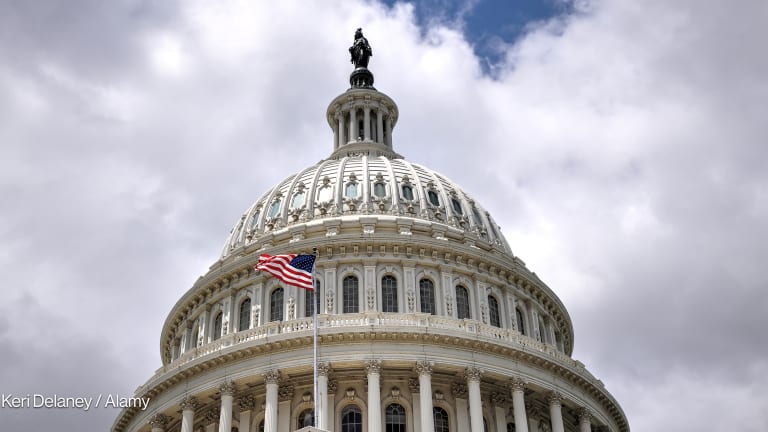
Addressing today’s development challenges requires a massive mobilization of capital and resources that the current setup of development finance is ill-equipped to provide.
Civil society groups and nongovernmental organizations are quick to deliver that message, urging donors and funders to put up more. But the view is also shared by at least one senior official in the U.S. government in charge of foreign aid and development.
“If we step back and we assess, do we really today have the right tools, the right resources and the right skills in the right places to deliver on the $100 trillion* price tag that the development challenges of today pose?” said Elizabeth Littlefield, chief executive of the Overseas Private Investment Corp., an independent U.S. government agency for foreign economic development.
Littlefield was speaking on a panel last week at the Center for Global Development, a think tank based in Washington, D.C., that convened the heads of four different development finance institutions. The top development finance officials from Germany, Norway, the U.S. and United Kingdom addressed the challenges and opportunities that their organizations face in using government funds to mobilize private capital in developing economies.
They described challenges ranging from marketing their agency’s work to the broader public to the scarcity of private Western banks in fragile states who are able to co-invest in development projects. But in some cases, the policies that govern these institutions create obstacles development officials say limit the impact of their investments.
Littlefield mentioned one in particular — OPIC’s long-standing policy to avoid equity investments in foreign companies. The congressional statute that established this policy essentially limits OPIC’s financing options to loans or other debt instruments when investing in companies abroad — preventing the agency from buying an ownership stake in the companies it finances.
Other countries’ development finance agencies — such as the U.K.’s CDC or Germany’s DEG — are not so restricted. They take equity stakes in foreign firms as a way to de-risk private sector investments.
Is it time for Congress to allow OPIC to follow suit? Littlefield seems to think so.
“[Our] policies were designed in the 1960s and haven’t really been adjusted since,” she said. “We need a 21st century toolkit of instruments that are appropriate for financial markets — like equity.”
The use of equity over debt has a number of benefits for development finance institutions, her international counterparts noted. Equity through company ownership draws agencies closer to their investments, granting them a seat at the table to influence company strategy or management changes.
“We strongly believe that through equity investments we can create the highest development impact in these companies,” said DEG chairman Bruno Wenn.
OPIC’s reliance on debt instruments also affects how other development finance agencies conduct their business. Development finance institutions often partner with one another to pool their capital and invest in a fund. But OPIC’s participation often changes how the fund must be structured in order to accommodate the U.S. agency’s debt-only policy.
“It is a huge drain on that market,” said Diana Noble, chief executive of CDC. “Practically, we find it torturous that OPIC doesn’t provide equity,” she added. “OPIC has to contort itself and contort the market because it’s only providing debt.”
Over the last five years OPIC has doubled its portfolio of loans and tripled its volume of investments in Africa, Littlefield noted. The agency has also grown its renewable energy investments hundredfold over that time. But more could be done if equity investments were added to the mix, several panelists noted. Sticking to debt financing pushes the U.S. government out of a lot of deals, experts say. And in low-income, high-risk markets where there are few commercial banks and investors to provide the kind of equity capital to develop nascent industries, the U.S. is missing high-impact opportunities to finance development.
The optimal financing strategy that OPIC should pursue in developing economies is the subject of a healthy debate in Washington, D.C. Much less debatable are the enormous sums of private capital that are needed on top of official development assistance to achieve the 2030 development agenda. By some estimates, the annual shortfall of funding needed to achieve the Sustainable Development Goals for 2030 is more than $3 trillion.
That gap adds urgency to OPIC’s debt versus equity question. Littlefield said her agency would benefit from more “policy flexibility,” allowing OPIC to respond to those funding challenges with more tools and financial resources.
* Update, Oct. 13, 2016: This article has been updated to reflect a $100 trillion estimated cost of addressing global development challenges.
Join Devex to network with peers, discover talent and forge new partnerships in international development — it’s free. Then sign up for the Devex Impact newsletter to receive cutting-edge news and analysis at the intersection of business and development.








